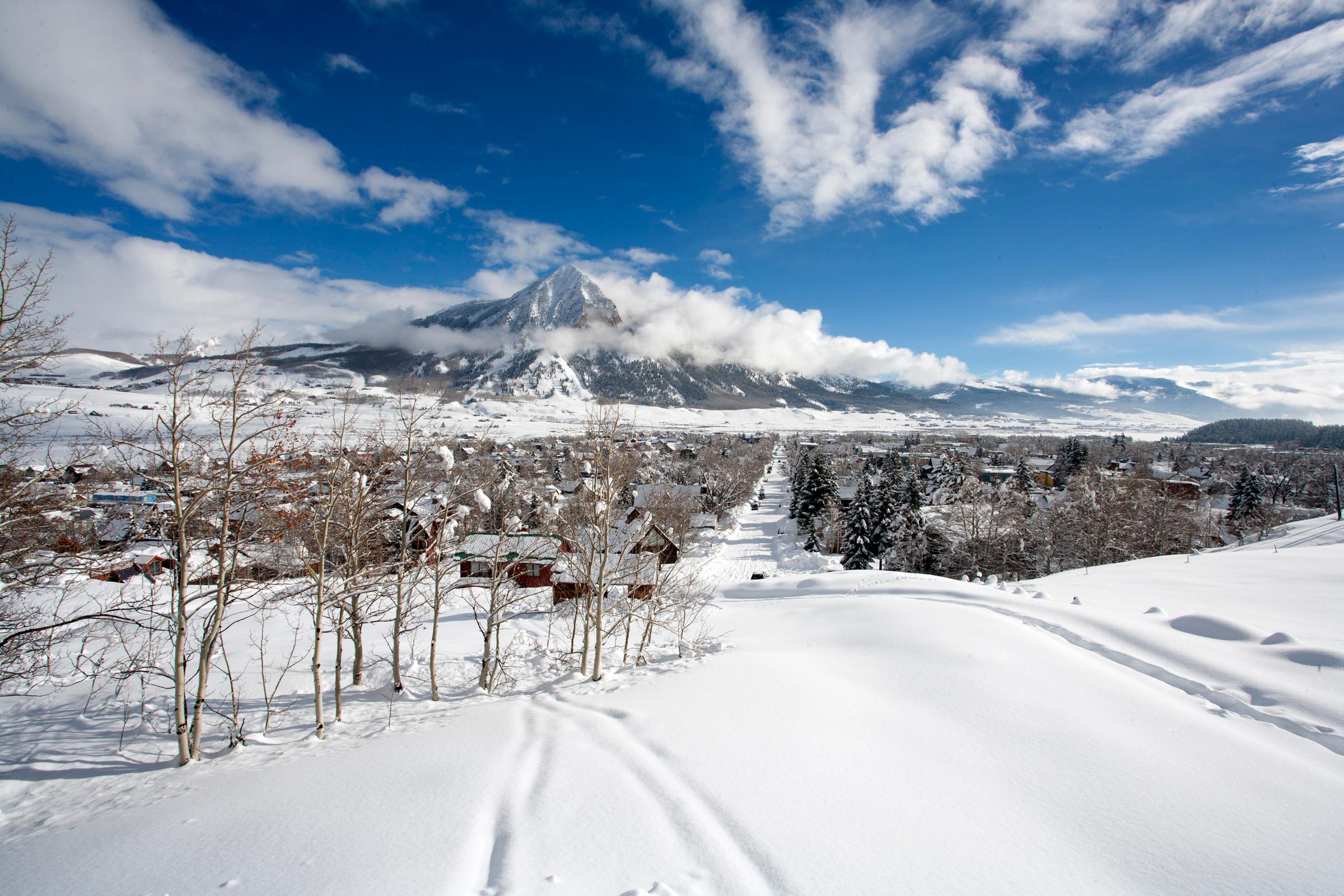
Crested Butte is a little bit out of the way compared to other big ski areas in Colorado like Vail or Breckenridge that are right off I-70. That’s part of its charm.
But despite its relatively remote location, people have been coming in droves for the past couple years. City officials say they’ve seen record visitation.
“[I] don't know how we could possibly be cramming many more people in,” said Crested Butte’s town manager Dara MacDonald.
It seems like the whole world suddenly discovered the lure of outdoor adventure and open spaces as other kinds of recreation evaporated practically overnight when the COVID-19 pandemic hit. Even when things started to open back up, being outside in the fresh air just felt safer than being inside at restaurants and shows.
That desire to get out to nature has been good for the bottom line of Colorado’s resort communities, filling mountain town coffers to the brim. And even after vaccines rolled out and people had more options to use their entertainment and tourism dollars, the boom continued. This past March, Crested Butte took in more than $400,000 in sales tax, compared to about $250,000 in March 2019. There was really great snow last March, which definitely helped lift those numbers, but that’s still off the charts when you look at the data in historical context.
Crested Butte’s MacDonald says this definitely wasn’t the outcome she was anticipating when everything, including skiing, was forced to shut down in March 2020 – but the town’s finances are now in really good shape.
“We've absolutely built up reserves and invested in things we wouldn't have otherwise,” MacDonald said.
The windfall paid for property acquisitions, she said, and the extra cash cushion helped convince the town council to advance green initiatives — including buying two Teslas for the police force, and a new hybrid loader to replace an old diesel version.
“You’re always balancing those goals against budgetary realities, and because our
budgets have been strong, we’ve had the confidence to move ahead,” MacDonald said.
But the pandemic-fueled rush to the great outdoors might not be sustainable if the economy hits a rough patch, as it looks increasingly likely to do. U.S. gross domestic product has shrunk for two consecutive quarters, meeting what many experts view as the technical definition of a recession,even if job growth is still strong. At the same time, stubborn inflation and a tanking stock market are taking a bite out of household wealth across the income spectrum.
It looks like the insatiable demand for outdoor experiences may already be fading as resort towns prepare for the official kickoff of Colorado’s winter sports season later this month. The crowds started to thin out somewhat this summer, MacDonald said. Although, even with fewer visitors, tax revenues for the town were still up, because prices for things like restaurant meals and hotel rooms are up so much. On top of that, a lot of mountain towns — including Crested Butte — have substantially raised taxes on short-term rentals like Airbnbs.
For now, it seems people who travel are still willing to keep paying sky-high prices, blunting the impact of any declines in traffic, but that might not last.
“I think we try and not have too many expectations anymore, especially after the last few years when it's been so unpredictable in terms of revenue,” MacDonald said. “But we certainly don’t count on revenues increasing the way they have in recent years … I would say we're still struggling to identify what normal expectations will be going forward ever since 2020.
The same story is echoing across Colorado’s other ski towns. Kim Weber is the finance director for Steamboat Springs. She said the town was expecting to dip into its rainy day fund during the early days of the pandemic. But instead, the city was able to add to that fund, and used some of the extra cash to pay for a housing project in the works — instead of having to borrow to pay for it.
“We were seeing such huge increases in sales tax … increases that I'd never seen before,” Weber said.
Now, she sees the tide turning a little bit, with visitation tapering off this summer. Hotel occupancy for the start of ski season is about 3 percent lower than it was at this time last year, she said.
“I think anyone should be right now … on notice watching those indicators, looking into what
it looks like for the next few months and then of course a year down the road,” Weber said.
At a recent Aspen city council session, finance director Pete Strecker told council members that after a surprisingly strong recovery from the pandemic, he’s expecting a pullback in
tourism this winter due to the economic headwinds. He pointed to the Federal Reserve’s aggressive campaign to fight inflation by rapidly raising interest rates.
“That's really going to come into play … and then really slow down some of the economic activity going forward,” Strecker said.
Similar to what other towns are reporting, he said hotels were less full in July and August than they were in 2019, the last normal benchmark year before the pandemic turned everything upside down.
In an interview, Strecker said it’s always important to be planning for the next downturn during flush times.
“Though it’s a windfall today, it could be a safety net tomorrow,” he said.









